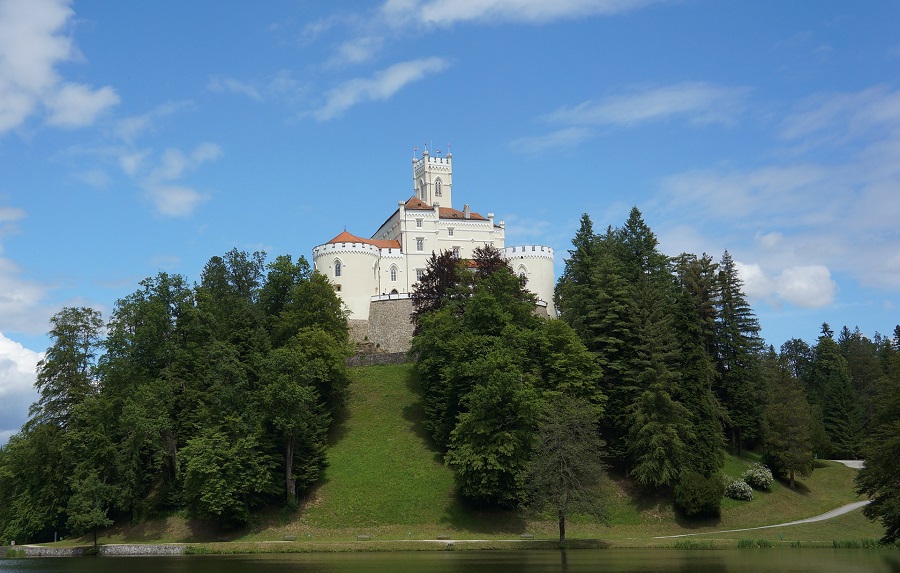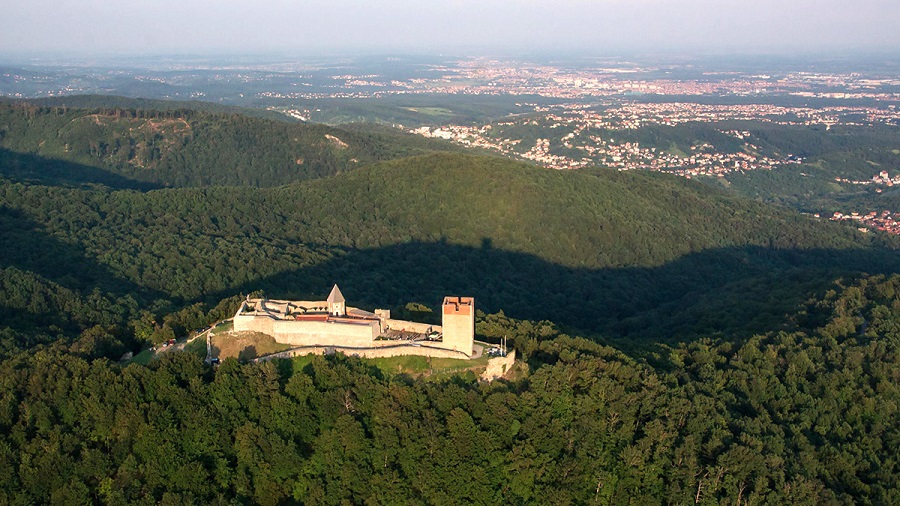No European Stability Without Russia, Milanović Says
ZAGREB, 1 Feb 2022 - There is no European, Western European or EU stability without Russia and it is necessary to reach an agreement with it, Croatian President Zoran Milanović said on Tuesday, accusing the West of inciting a war that he hopes will not break out.
"I don't even want one Ukrainian to be killed, even one Russian. As for Croats, not a chance," he told the press.
"There is no European stability, no Western European stability or European Union stability without Russia in the equation, and it's necessary to reach an agreement with Russia."
After telling a female journalist that a head of state does not meet with visiting defence ministers, including the British defence secretary who was in Zagreb today, Milanović speculated that she wanted to ask him for a comment on Great Britain's stand on Ukraine.
"Everything he is doing is mostly motivated by his political situation at home," he said about Prime Minister Boris Johnson.
In Great Britain, there are more and more calls on Johnson to resign over Downing Street parties during a strict COVID lockdown.
Milanović accused Britain of "mongering" and said that pushing Ukraine towards a confrontation with Russia was "irresponsible."
"Ukraine will not make itself happy if it listens to London. They are pushing them into a very dangerous adventure and President (Volodymyr) Zelensky has realised this. What I have been hearing from Kyiv in the past few days is very sensible and responsible towards one's own state."
Milanović has been criticised after saying recently that Ukraine does not belong in NATO, that it is corrupt and that Croatian soldiers will not be killed there. The Croatian ambassador in Kyiv was summoned for talks after those statements.
Ukraine's friend
Milanović said today that he was Ukraine's friend and that it was very irresponsible to mislead a state. He spoke of difficult problems Ukraine faced as it was not progressing towards EU membership and was stagnating, whilst being held hostage by London and Washington.
He also said that the EU was sending Ukraine confusing messages. "To stand in solidarity with Ukraine and say 'we support you, clash with Russia' is irresponsible, villainous."
Milanović said one should not foment arguments that Russia will attack Ukraine tomorrow. "If it attacks them, one should ask who is responsible for that."
"The Croatian soldier will not move from here," he added.
For more, check out our politics section.
UEFA Playmakers: HNS, UEFA, and Disney Join Forces to Promote Women's Football in Croatia
February 2, 2022 - This March, young girls all over Croatia will have the opportunity to participate in the UEFA Playmakers program and enjoy football through innovative and fun training programs that follow the most popular Disney animated hits.
What is the UEFA Playmakers program?
Namely, HNS reports that the UEFA Playmakers is a pan-European program promoting women's football, which was created in cooperation between Uefa and Disney. The Croatian Football Federation is thus introducing the program in Croatia on March 1. The program is intended for girls aged 5 to 8 and is adapted to girls who have never played football or participated in a sport before.
The program has a unique approach based on scientific research from Uefa and Leeds Beckett University. It focuses on narration, acting, imagination, and children's play as the main elements in encouraging girls to play football and develop motor and physical skills.
In Croatia, the program will take place in 2022 and 2023, and four editions will be organized. The first edition - in March 2022 - will follow the animated film Frozen 2.
Each edition of the program will consist of ten trainings. The girls will embody characters from Disney's most popular animated films, such as Frozen and The Incredibles, and learn basic football skills.
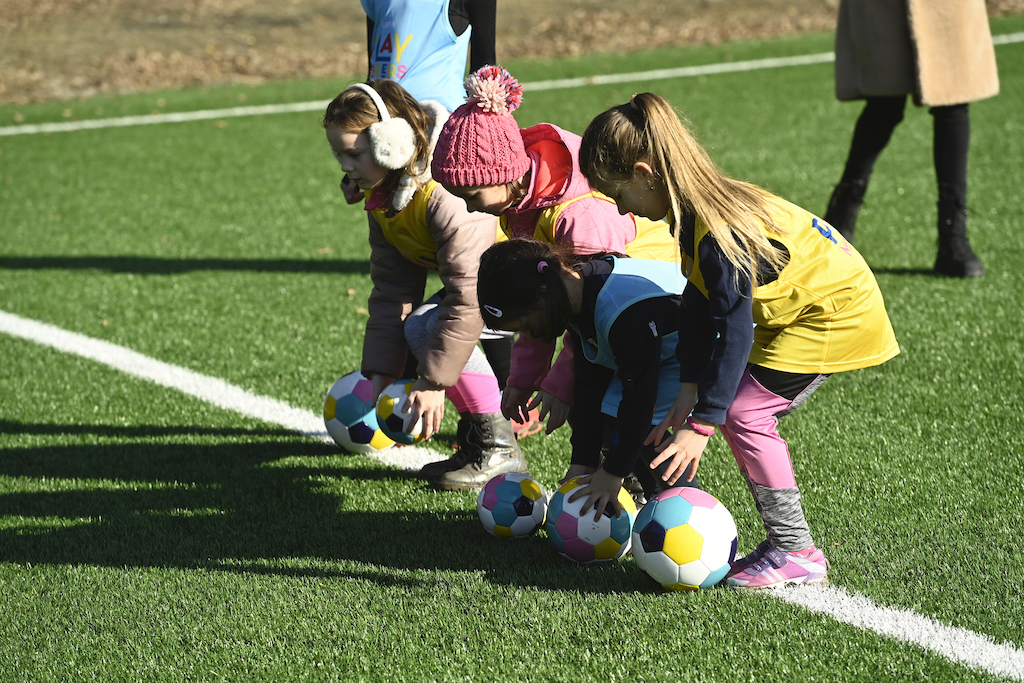
The training will take place on the fields and/or in the halls of women's football clubs so that girls can join the clubs and continue playing football after participating in the UEFA Playmakers program.
The ambassador of the UEFA Playmakers project in Croatia is the former celebrated Croatia national team member and current coach of the Croatia U-19 national team Niko Kranjčar, who stressed the importance of the game in encouraging children to play sports:
"I like this program for several reasons - I'm a big fan of cartoons, especially Disney, and I'm also a big fan of sports, and I believe that all children should have the opportunity to play sports. This initiative is a great way for young children to get in the habit of playing sports through playfulness and fun, which, in my opinion, are the most important parts of sports."
What makes UEFA Playmakers special?
Unlike traditional football programs, each of the ten trainings in each edition of UEFA Playmakers follows animated hits such as Frozen 2 and The Incredibles 2. Girls participating in the training will have the opportunity to embody popular characters such as Elsa and Anna and Incredibles heroes, develop basic football skills and cooperate, all while using their imagination.
The fundamental goal of the first few trainings is to encourage girls to gain self-confidence in their sports skills and to think creatively and communicate with other participants in the program. In the program's continuation, coaches introduce exercises that develop fundamental football skills, but the emphasis remains on relaxed playing and fun.
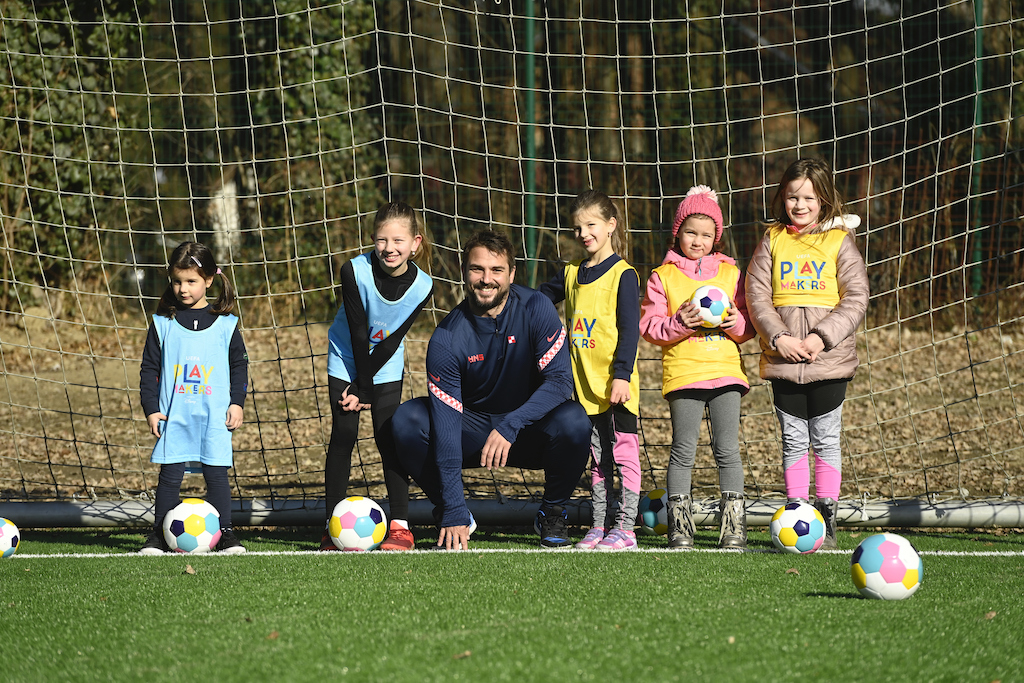
"The development of women's football and encouraging girls to play football are essential goals of HNS, and we believe that this program, along with many other programs for the development of women's football that we already implement, can be of great benefit to the development of our women’s soccer base. As a long-time coach who has worked with young people and as the main instructor who has worked with young players, I see a lot of potential in the approach used by UEFA Playmakers - I think that playing and acting is a great way to introduce football to girls and to lay the foundations for their football through a positive and fun experience.
The football centers that will implement the UEFA Playmakers program in cooperation with HNS are closely connected with women's football clubs, and we hope that the girls will love football through this non-competitive, fun training, and want to continue their football travels in clubs," said Chief Instructor of the Croatian Football Federation Petar Krpan.
Where and when is the UEFA Playmakers program held in Croatia?
The program will be held in 30 football centers in Croatia so that girls from all over Croatia can participate. Trainings will be held in Zagreb, Rijeka, Split, Osijek, Dubrovnik, Čakovec, Ivanec, Karlovac, Kaštela, Koprivnica, Lepoglava, Metković, Požega, Pregrada, Pula, Slavonski Brod, Velika Gorica, Vinkovci, Zadar and Županja.
The first edition of the program starts in March, and parents can register their girls today (from 5 to 8 years old) to participate via the link. The second edition will begin in May this year, while the third and fourth editions will be organized in the fall of 2022 and spring 2023, respectively.
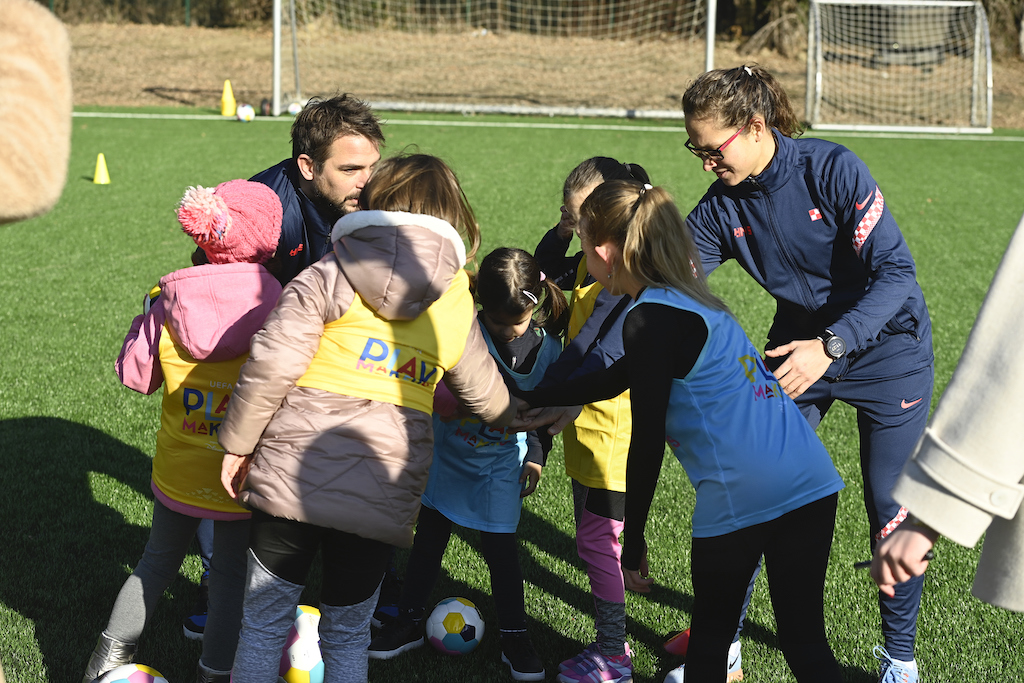
An approach based on scientific research and previous positive experiences
The emphasis on learning through play and acting - at the heart of UEFA Playmakers - is based on scientific research conducted by UEFA under the auspices of UEFA Beckett University in Leeds, which has shown the critical role of entertainment and non-competitiveness in encouraging girls to the way they start playing sports. The UEFA Playmakers program is also based on the exchange of knowledge between Uefa and the England Football Federation, running the "Shooting Stars" program in collaboration with Disney for several years.
The program's main goal is to encourage girls to play football through fun, non-competitive training and provide them with an easy way to gain more confidence and security when it comes to sports activities.
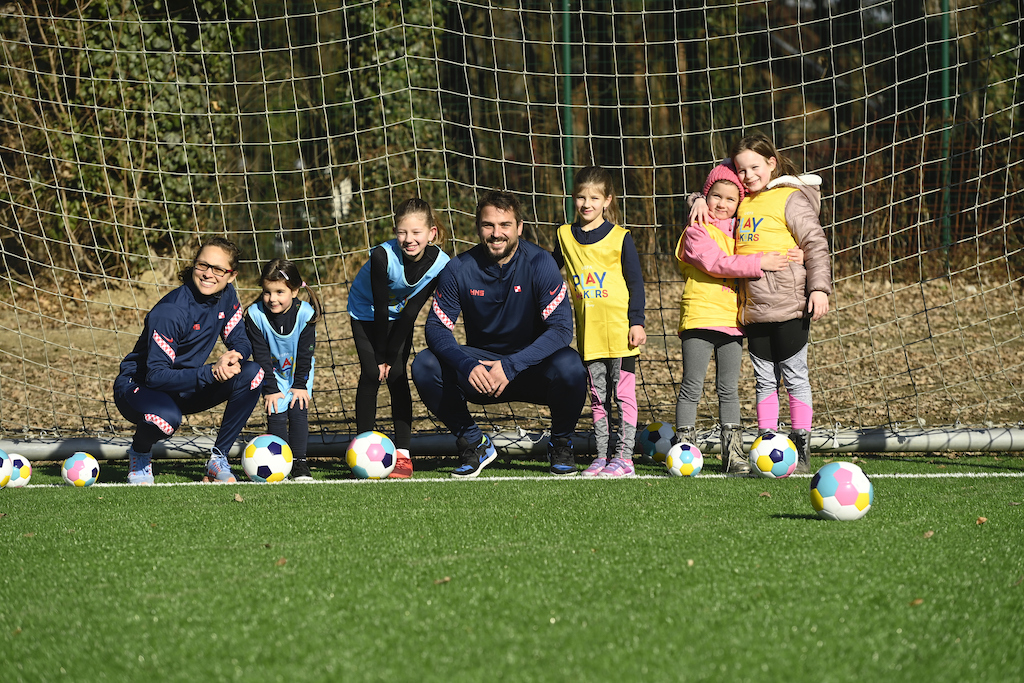
Through a combination of Disney's popular stories and characters and academic recommendations that show the positive role of narration and acting in promoting sport among children, UEFA Playmakers aims to increase the proportion of girls in Europe who meet the World Health Organization's recommendations for sports and physical activity. This program is crucial for HNS and Croatia because Croatia is among the poorest members of the European Union when it comes to the share of the population that meets the health recommendations for physical activity. The percentage of women who meet these recommendations is particularly low.
To read more about sport in Croatia, follow TCN’s dedicated page.
'Mystery Krk Woman' Daniela Adamcova Claims She was Abducted
February 2022 - The mystery woman from Slovakia who was found bloodied and disoriented on Krk in September last year, later revealed to be Daniela Adamcova, interviewed for the Slovak weekly Terajšok in which she said that she had been abducted.
Recall, on September 12, 2021, a woman was found on a rock on the island of Krk, wholly disoriented and without any memory of who she was or where she came from. She did not have any identification. However, she spoke English, so it was immediately clear that the woman was a tourist in Croatia. Ten days later, we learned the woman was Daniela Adamcova.
Adamcova is a Slovak who spent a good part of her life in the USA. She was engaged in jewelry making and allegedly made jewelry for Hollywood stars, though this was never confirmed. She returned to Slovakia after living in America.
Now, almost five months after being found in Croatia, Adamcova is convinced that she was abducted, reports Index.hr.
Adamcova said she did not remember how she came to Croatia at all. The last she remembers is waiting for friends in the apartment to pick her up and someone ringing the doorbell. The next thing she remembers is sitting on sharp rocks in the dark covered with a blanket with traces of blood on it. After that, she says she was beaten, bloodied, and - paralyzed.
"I remembered three people. First, I remembered I was on a big boat with two men and a woman. Then I remember they dragged me to the island. Another man was waiting. He dragged me to that island. That was all I remembered. But I still see the faces of the three people in front of me. I remember them very well. I described them to the police as well," she said.
She claims that the hospital did not perform all the necessary examinations or heal her wounds. She also claims that the behavior of the police during the interrogation has changed.
"They looked at each other as if they knew what I was talking about; they suddenly lost interest in listening to me," she says.
She adds that they could not take her fingerprints because she had some kind of glue on them, and she could not scrape it off. Later, the police returned her backpack, which, she says, was full of garbage. She found only the old keys to the apartment in Trenčín. She claimed her documents, money, and everything inside had disappeared.
"I guess they thought they killed me because I was covered with a towel on that beach. It's all bizarre. Also, the fact that I had glue on all my fingers. What do you think happened?
My memory began to come back when I returned home, even Slovak. I think it must have happened here in Slovakia. Maybe it wasn’t some real company I found on the internet, but some scammers. I don't remember where I was from August 20 to September 12 and what happened in the meantime," Adamcova said.
Although she is convinced that someone injured and abducted her, she claims that she is not satisfied with the way the Croatian police acted and adds she did not contact the Slovak police.
Given all her allegations, including accusations against the Croatian police, Index asked the police to answer questions about their allegations, whether there were any indications in the investigation that it was a kidnapping and whether they checked all the information.
The police assure that they checked all the information related to the case during the investigation and that there were no indications that it was a kidnapping. Furthermore, they say that there was no indication that Daniela Adamcova was a victim of kidnapping or any other crime.
They state that they approached the whole case from the very beginning very seriously and devoted themselves entirely to checking every, even seemingly unimportant, information.
"By checking all the allegations from the statement, Rijeka criminal investigators did not establish the slightest indication that the found woman would be a victim of a crime in any way, i.e., that her disappearance and injuries were a consequence of the crime to her detriment," the Interior Ministry said.
They also state that experienced criminals worked on this case, with enviable results in their police career.
For more news in Croatia, follow TCN's dedicated page.
New for 2022: Swanky Expats Travel Club - Explore Croatia Beyond the City
February 2, 2022 - Calling all expats, digital nomads and remote workers - are you looking to discover the coolest spots and hidden gems outside the city that is your new home? Help is at hand - meet the Swanky Expats Travel Club.
Having lived in Croatia for 18 years, and having been privileged enough to have visited every corner of the country, I am constantly blown away by the number of incredible experiences one finds here off the beaten track. I could list a hundred, but for the sake of time, how about attending a foreign veteran reunion barbecue in an authentic English pub in a field literally in the middle of nowhere in eastern Croatia. Read more in After Vukovar, Foreign Veterans Gather in English Pub Near Vinkovci.
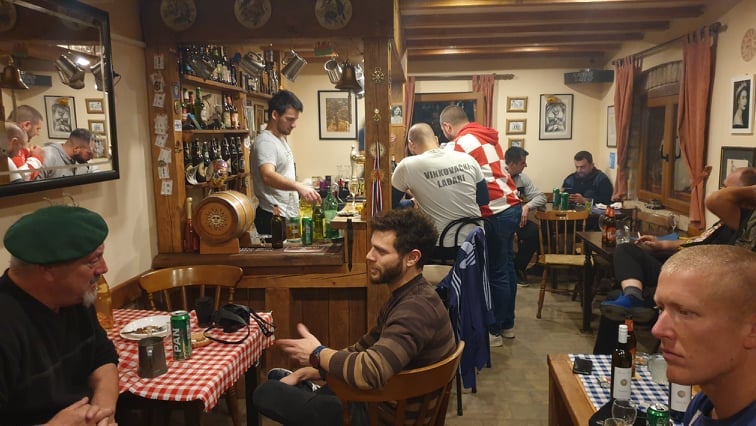
Many incredible experiences that even many locals do not know about, and I am very grateful to those who have shown me this hidden part of Croatia.
I have been an expat in 10 countries in my life, and I know very well how hard it is to break out of the comfort zone of the city in which I resided, and how daunting it could be to find ways to get off the beaten track and discover the soul and essence of a country. If only there was some kind of travel club where I could plug into the local experiences and perhaps meet some cool people along the way.

It was only when I came back from yet one more sensational discovery with the lovely Iva Perokovic from Swanky Travel that I realised we had a cool solution. Imagine this (and I had never heard of it) - a military airbase built into a mountain which could house 80 MiG fighters, as well as withstand a nuclear attack, which you could actually walk through to get from Croatia to Bosnia. Nuts.
But that is just the kind of nuts that Iva offers with every experience. You can learn about the Zeljava airbase tour here.
What if Swanky Travel could start some kind of expat travel club, offering sensational experiences - initially from Zagreb, but soon from other cities if successful - a few times a month to cool places for small groups of expats, digital nomads and remote workers (with locals more than welcome)?
I have to tell you about Swanky first. The award-winning Swanky Mint Hostel on Ilica is literally one of the coolest places to stay in Central Zagreb - how many other places have their own outdoor pool by the bar, for example?
And what a bar it is, as you can see above.
And with young Iva networking, hosting, pleasing, and organising, thiings run very smoothly indeed, and the vibe is fab. The fact that this happens to be a 3-minute walk from my front door is accidental. And did I mention the food? SOI Fusion on the ground floor is arguably the best Asian in the Croatian capital.
You can see Iva in action during last year's Zagreb Digital Nomad Jolly Wrap Up (her idea) - one of the very best things that happened in Croatia in 2021.
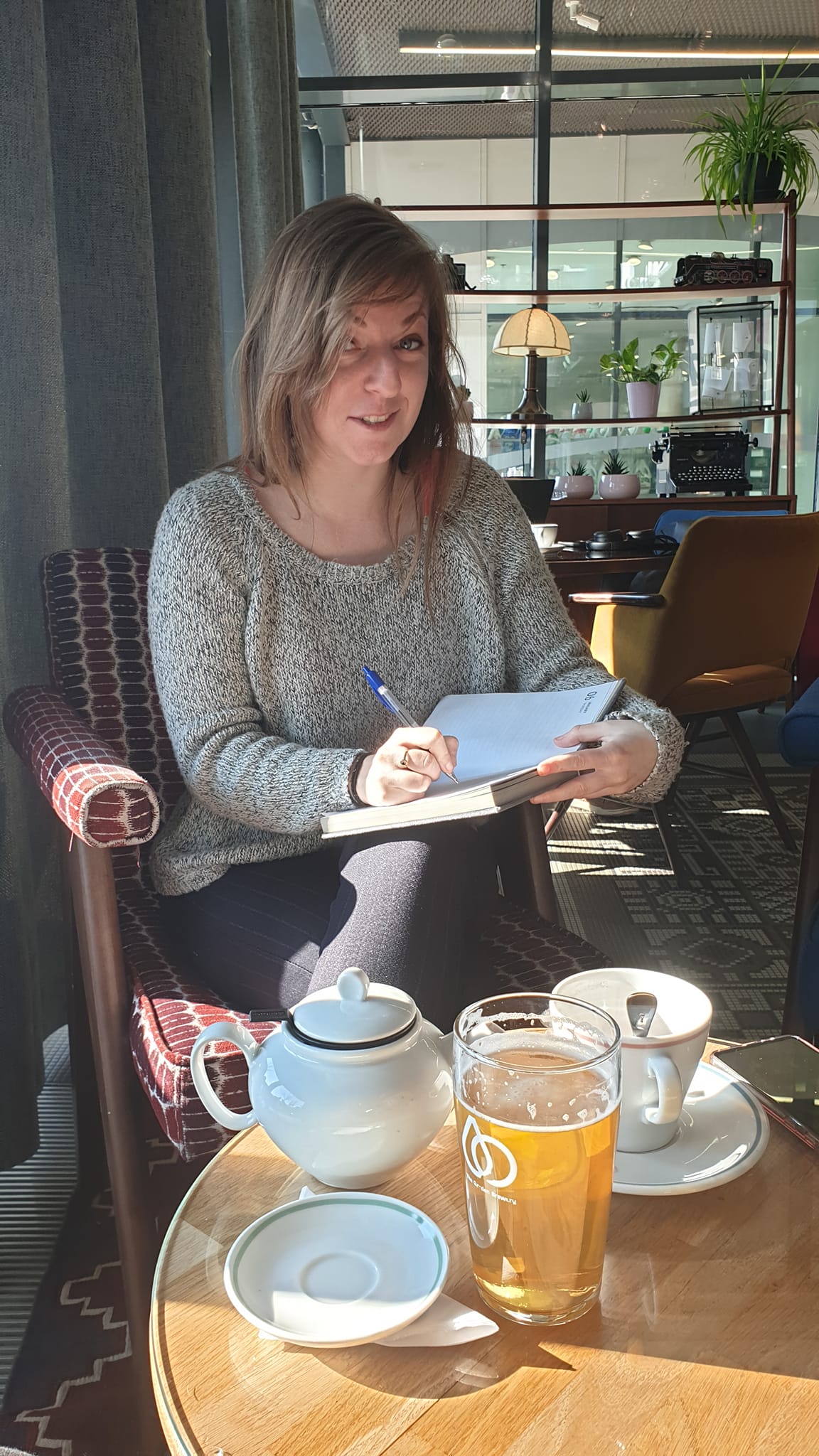
So Iva - what do you think, I asked over a cold one at Canopy by Hilton recently.
This is what she came up with...
Dear digital nomads, expats and remote workers, we know community is number one on the list of priorities when it comes to your kind of lifestyle... We also know that Croatia has so many wonderful things to offer. So, by combining these two facts we present:
Swanky Expats Travel Club
Every month we have prepared activities and tours that will give you an opportunity to discover Croatia, meet new friends and get an insight from locals. There are 3 “categories” so we hope there is something for everyone:
OUTDOOR CROATIA
TASTY CROATIA
FANTASTIC CROATIA
For now, we have planned February so stay tuned for more because we have prepared Wine & Food tours, Rafting on Mrežnica river, Urbex tours to explore the abandoned sites, Cooking classes, Quad safari, Hiking tours, Cocktail workshops, River cruises and much more…
Since the spots are limited – make sure you book yours at This email address is being protected from spambots. You need JavaScript enabled to view it.
***************************************************************
SCHEDULE FOR FEBRUARY 2022
GINCREDIBLE DAY
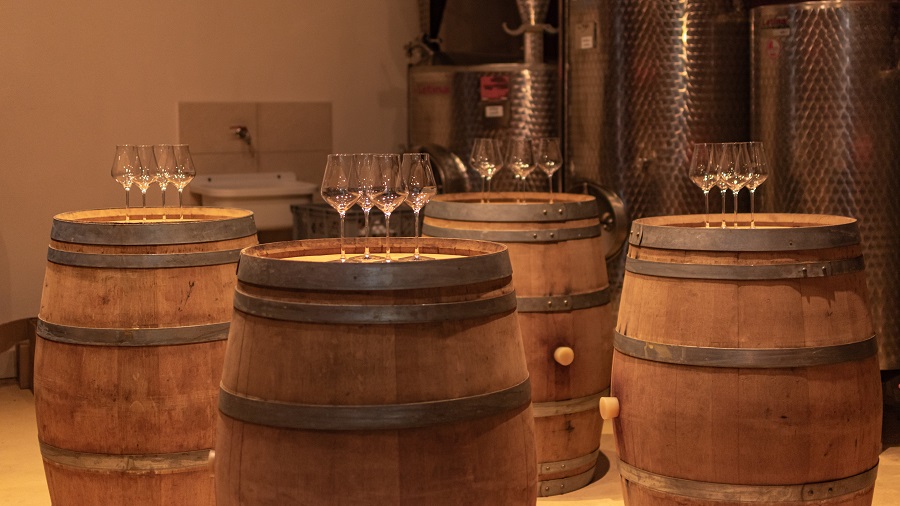
- NAME: GINcredible day
- DATE: 12th of February 2022
- PRICE: 35,00€ / per person
*Max 10 pax
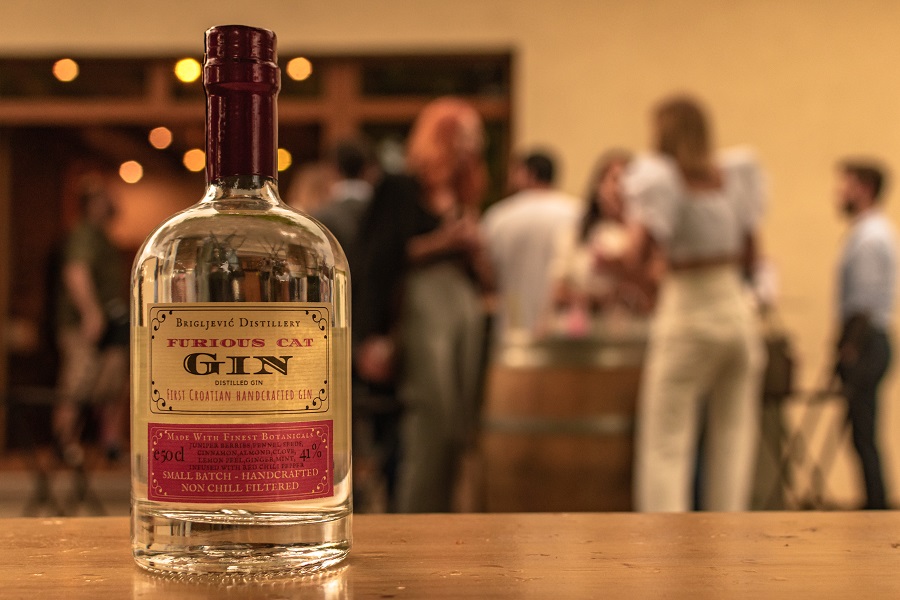
INCLUDED:
- private gin workshop
- tasting & finger food

ABOUT:
Only 25 min away from Zagreb a popular distillery will host a Gin workshop for us. They are famous for the first Croatian craft gin called Flying Cat and, on this tour, we will learn, taste and have fun...
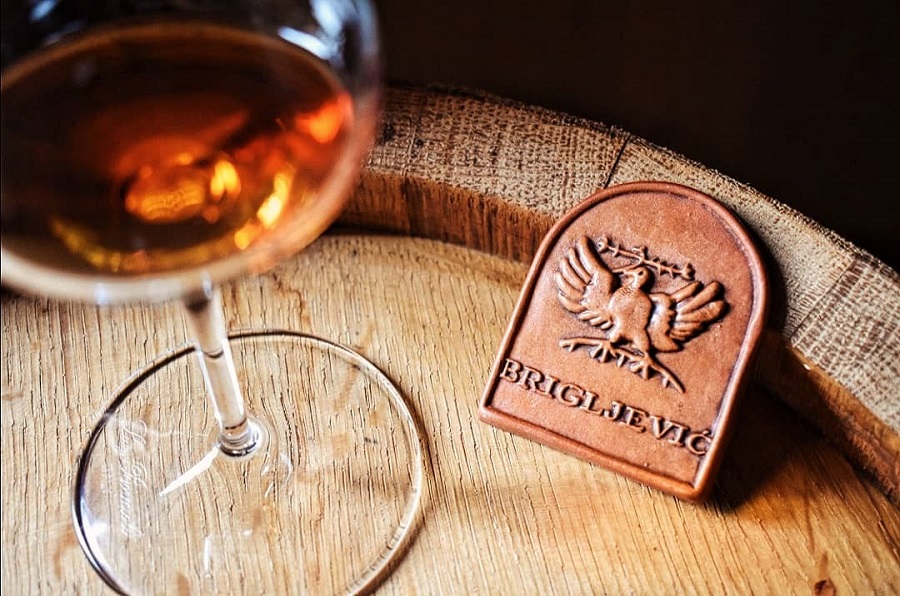
CASTLES OF THE NORTH
Trakošćan
NAME: Castles of the North
DATE: 19th of February 2022
PRICE: 50,00€ - 75,00€ / per person
*Depends on the group size (5 - 19 pax)
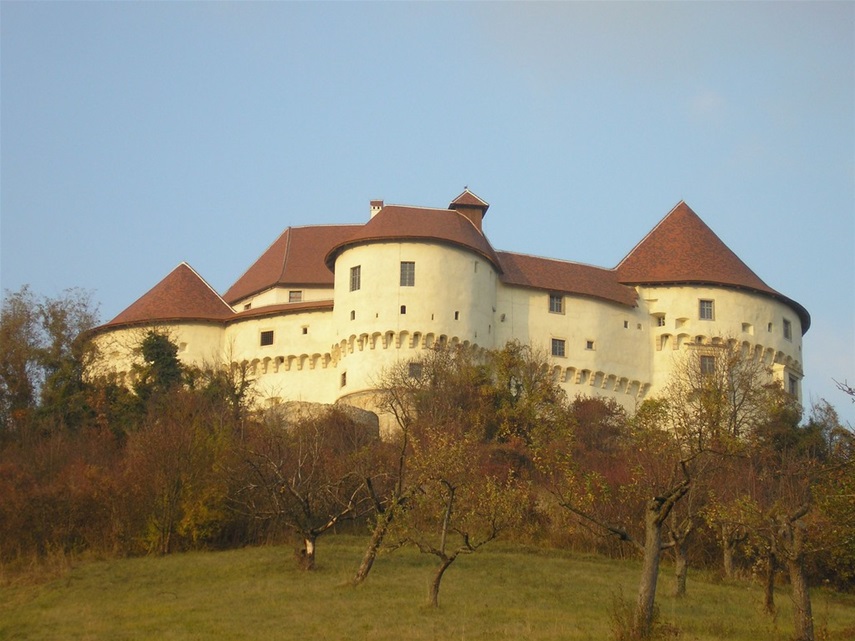
Veliki Tabor
INCLUDED:
- private2-way transfer
- private tour guide
- tickets for Veliki Tabor & Trakošćan
- lunch in a local restaurant
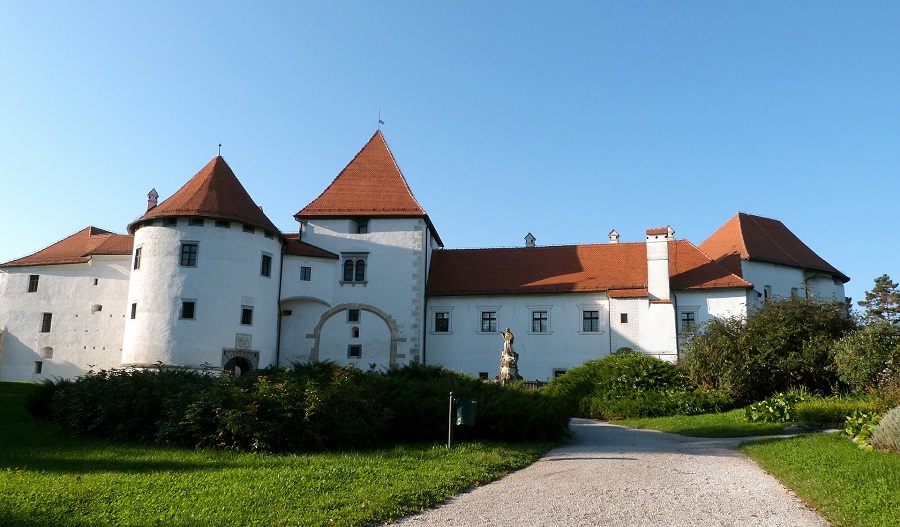
Varaždin
ABOUT:
Let us take you back to the Middle Ages - we are visiting 3 wonderful locations with picturesque castles of Croatia - Veliki Tabor, Trakošćan and Varaždin. Of course, we will end the tour in a local restaurant where a traditional lunch awaits.
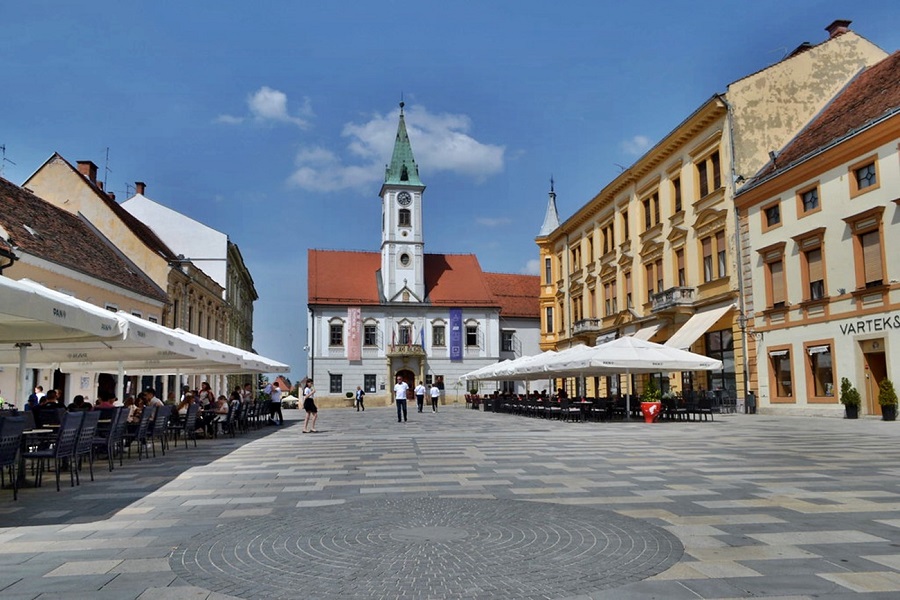
Varaždin
WINTER MEDVEDNICA HIKE
- NAME: Winter Medvednica Hike
- DATE: 26th of February 2022
- PRICE: 20,00€ / per person
*Max 10 pax

(Medvednica - J. Duval)
INCLUDED:
- private tourguide
- morning hike(2h up /2h down)
- lunch in one of the mountain houses on top
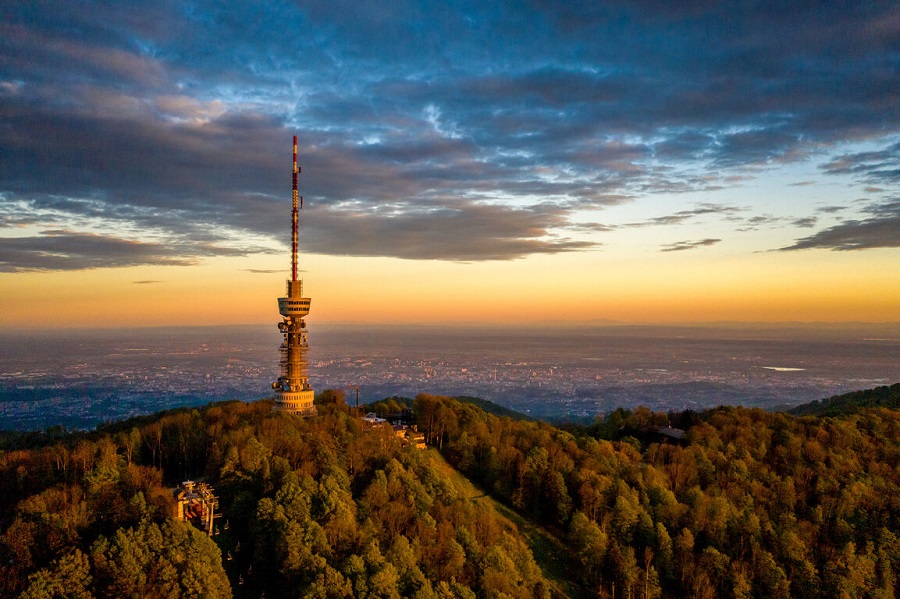
(Sljeme - J.Duval)
ABOUT:
Medvednica - the lungs of Zagreb - beautiful mountain watching over the city for centuries. Today it is a great escape to nature, so do what locals do
- put on your hiking shoes and backpack and join our outdoor guide on a hike to the top where you will treat yourself with some delicious traditional lunch.
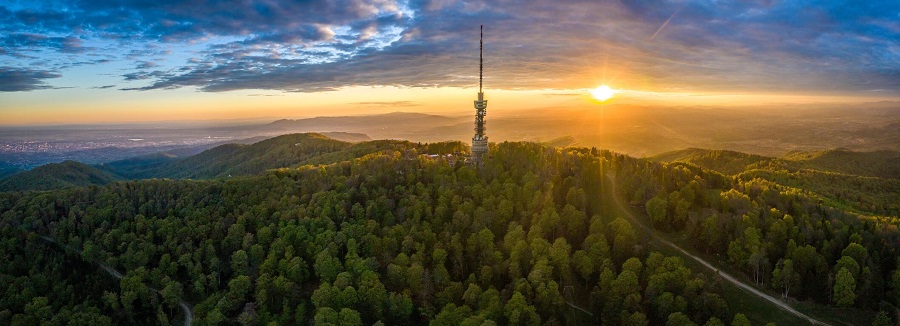
(Sljeme - J.Duval)
Of course, this is just the beginning, and if Swanky Expats Travel Club proves to be a success, we will expand operations to other cities. We already plan to organise a visit to the Mali Ston Oyster Festival from Split in March, for example.
And then, of course, there is the magical east of Croatia which many locals are unaware of. Have a taster here in Time to Tell the Truth about Slavonia Full of Life.
And fabulous festivals such as HeadOnEast in Osijek, less than 3 hours from Zagreb. Iva can show you the magic...
So who fancies any (or all) of the first 3 tours of the Swanky Expats Travel Club? You could be making history.
Since the spots are limited – make sure you book yours at This email address is being protected from spambots. You need JavaScript enabled to view it.
Apolitico Winery Tasting in Zagreb Presents 'The Minister's Wine' by Tomislav Tolušić
February 2, 2022 - 'The Minister's wines' by Apolitico winery were tasted at the Zagreb Wine Club.
The white wines "Angel with a mistake" (Graševina, Chardonnay) and Maestoso (Chardonnay), red wines "Angel with a mistake" (Cabernet Sauvignon, Merlot, Frankovka, and Cabernet Franc) and "Čaruga" (Cabernet Sauvignon, Merlot), and as a surprise dessert Cuvée (Cabernet Sauvignon, Franconia and Pinot Noir) were featured. 
The owner of the Apolitico winery from Rezovac near Virovitica is the former Minister of Agriculture and Deputy Prime Minister Tomislav Tolušić, who was also the Minister of Regional Development and EU Funds in one term. The wines were presented by former Minister Tomislav Tolušić, oenologist Ivana Nemet, who used to work at Feravino and Orahovica and recently is the director of the Technological Innovation Center in Virovitica and sommelier and head of the Wine Club Tomislav Jakopović. 
Viticulture has been in the Tolušić family since ancient times. Tomislav Tolušić inherited a vineyard with 500 vines. In addition to the family vineyard in Rezovac, in Kutjevo at the Kaptol and Vidim locations, 6 hectares of vineyards with white varieties have been leased. In Baranja, red grapes from Pinkert and Kolar are being bought. The annual production is 60,000 liters and 11 labels, but only two people are employed in the winery.
The first tasting was of "Angel with a mistake" - a 2020 vintage with 13% alcohol. It is a 90 percent Graševina with 10% Chardonnay. The wine was aged in a 1200-liter Georgian amphora, with maceration and fermentation for about 20 days. After that, it was in an oak barrique barrel for 12 months. Four thousand bottles were filled. The wine is golden yellow to amber. The aroma is dominated by fruitiness, and the taste is pleasantly soft, dense, and refreshing. The wine was named after the song of the Virovitica group Vatra, with whose frontman Ivan Dečak, Tomislav Tolušić grew up.

The tasting continued with Maestos - a Chardonnay, 2020 vintage with 13% alcohol made with the sur lie method. The fermentation was done in new oak barrels of 500 liters, and after the first overflow, the wine was returned to the oak barrels. Then, the cultivation of the sediment begins. The grapes for this wine were bought in the Radovanci vineyard near Velika, grown under professional supervision with no more than 600-700 grams per vine. Maestos is predicted to be long-lived and is filled in just 1,900 bottles. Nuts dominate the aroma with soft tannins
"Angel with a mistake", a red wine from the 2020 vintage with 14% alcohol, was made from four varieties (Cabernet Sauvignon, Merlot, Frankovka, and Cabernet Franc) in four amphorae. After the macerations and fermentations were completed, a blend was made and returned to the amphora. The aroma and taste are dominated by the freshness of red and black fruit.
Red wine "Čaruga," a 2020 vintage with 14.5 alcohol, is made with 50% Baranja Cabernet Sauvignon and Merlot. Apart from the oak barrel, this wine was also cultivated in chestnut, with 30% more tannins, which can be felt in the fruity aroma and taste. It is filled in 5000 bottles.
At the end of the Apolitico winery tasting, a Cuvée 2020 vintage of dried grapes was served. Unfortunately, all 1,500 half-liter bottles have been sold, and only a few have been preserved for tastings and archives. This dessert wine consists of 50% Cabernet Sauvignon, 40% Franconia, and 10% Pinot Noir and has 90 grams of unfermented sugar per liter and 15.5% alcohol. The grapes were dried in three dryers, applying the Italian passito method.
The bottle design features illustrations by comic artist Davor Schunk. The Apolitico wines tasted at the Wine Club are unique and rare, and oenologist Ivana Nemet showed all the splendor of her talent that cannot be manifested in a large winery due to market reasons.
By the way, Tolušić is not the first minister-winemaker. Former Minister of Agriculture Petar Cobankovic was also a winemaker.
Photos: Marko Čolić
For more, check out our lifestyle section.
Can't Get Hold of Your GP? New HZZO Email Address to the Rescue
February the 2nd, 2022 - There are many instances of people who are registered with a GP being unable to get hold of them after repeated attempts in numerous ways. Finally realising that this is an issue for people, a brand new HZZO email address has been launched for those types of situations.
As Poslovni Dnevnik writes, before deciding to team up together to try to tackle the issue of the vanishing GP, the Ministry of Health and HZZO (Croatian Health Insurance Institute) announced that they had been receiving more and more complaints from insured persons about the difficulties they were facing when it came to obtaining healthcare in the offices of their selected General Practitioners due to an inability to contact them in person, by phone, email or otherwise.
Perhaps carrier pigeons hadn't yet been tried out by those in need of their GP's services, for which they or their employers pay every month, but we can wager a guess that this would also have failed. According to the Health Ministry, they received more than 3,000 patient reports on such matters, which is quite disappointing to say the least.
Due to the large number of complaints of this nature, HZZO has established a new email address: This email address is being protected from spambots. You need JavaScript enabled to view it. to which insured persons can send their complaint.
The complaint sent to this new HZZO email address must state the individual's personal data (their name and surname, OIB and contact telephone number) and the name and surname of the selected doctor about whom the insured person is complaining.
Without the aforementioned data sent to the new HZZO email address, the Croatian Health Insurance Institute will not be able to do anything, ie get in touch with the doctor in question and/or help in the urgent resolution of whatever problem that the insured person has, they explained from HZZO.
For more, check out our lifestyle section.
Dubrava Hospital Receives 3.8 Million Kuna Gas Bill as Prices Soar
February the 2nd, 2022 - The increase in fuel and gas prices has been a topic on the lips of many across Croatia for several weeks now. With the government having stepped in previously to cap the rapidly rising prices of fuel in order to keep drivers happy, now the situation with gas is becoming an enormous issue. Zagreb's Dubrava hospital (KB Dubrava), which has become synonymous with coronavirus after having been declared the ''covid hospital'' back in 2020, recently received a gas bill totalling an eye-watering 3.8 million kuna.
As Poslovni Dnevnik writes, after companies headquartered here in the capital were shocked by their own gas bill totals, the shock then made its way to the City of Zagreb's state-owned hospitals. The gas bill for the last two winter months is higher than the bill for the whole of 2020. A solution to this unsustainable issue is, worryingly, not yet in sight.
Heating and air conditioning for 68 thousand square metres, steam sterilisation, cooking and so on is bound to add up, especially given the fact that the boiler room of the Dubrava hospital is the largest hospital boiler room in all of the Republic of Croatia. This hospital's gas bill for December quite rightly sent them into a state of shock and disbelief.
"Last year we paid 800,000 kuna for the gas bill covering the same amount of space, and this year we paid 3,800,000 kuna for a slightly lower consumption per cubic metre,'' Elkaz Cehajic, head of the technical affairs department at the Dubrava hospital, told HRT.
That is 73 percent of the bills they paid for the whole of pandemic-dominated 2020. Another Zagreb hospital, KB Merkur, has had to face the same problem. Back in December 2020, they paid a 178 thousand kuna bill for gas, just one year later, that same gas bill stands at 740 thousand kuna.
At the Sveti Duh hospital, they are currently resisting high energy bills because they are heating the premises through the heating plant. Gas is used for cooking and burners in the laboratory, and there was no increase.
“Our owner and founder, ie the City of Zagreb, agreed on our behalf for a fixed price for gas, ie a price per unit volume. We're actually protected by that contract, as are a number of other companies owned by the City of Zagreb,'' said Ana-Maria Simundic, the director of KB Sveti Duh.
For more, check out our lifestyle section.
Croatian Photomath App Launches Engineering Blog on Medium Platform
February the 2nd, 2022 - The Croatian Photomath app has been a roaring success, having gained a lot of recognition very quickly. The team behind it have now launched an interesting engineering blog on the popular blogging platform Medium.
As Poslovni Dnevnik/Lucija Spiljak writes, the Croatian Photomath app has launched an engineering blog on Medium, an online platform with more than 100 million readers, where all those interested in getting better acquainted, as they say, "with life in the company" and everything they work on, can read about the ins and outs.
The creator of the Croatian Photomath app which works to help solve mathematical problems has announcing that they have something new in the works for months now, and their blogging project has now seen the light of day.
“We wanted to create a space where we can share our knowledge and experience with the community and show how, why and what engineers at Photomath do. We're going to write about how we work on our products, projects and technologies, and we can expect stories about #LifeAtPhotomath and interesting engineering topics at least twice a month,'' they announced from Photomath.
They currently have twelve active authors, and training is being prepared for a dozen more. So far, five topics have been published.
In one of the texts, Petar Alilovic, Android Tech Lead, presented Photomath's current news, revealing, among other things, that the users of the application are not only students but also parents and teachers. Last year, 5 percent more parents and 13 percent more teachers used this impressive maths app.
Among students, it is most often used by high school graduates, but it seems that after high school they stop using it, unless they choose a profession related to mathematics. According to data from last year, the Croatian Photomath app has been downloaded more than 220 million times worldwide, of which ten million users use the application every single day for various purposes.
According to Photomath's founder, Damir Sabol, the market potential is in a billion students who have to learn mathematics during their mandatory education and sometimes beyond it. Their largest market is across the pond over in the USA, followed by Russia, Italy, Brazil and Indonesia, while here in Croatia, they interestingly don't have as many users as they have abroad.
Last February, the Croatian Photomath app secured a massive 23 million US dollar investment from the American fund Menlo Ventures to further develop the app.
For more, check out Made in Croatia.
HEP's Medjimurje Solar Power Plant to Become Croatia's Largest
February the 2nd, 2022 - The up and coming Medjimurje solar power plant is set to become the largest in all of the Republic of Croatia as HEP continues its investment cycle.
As Novac/Jutarnji writes, back in December 2021, the Kosora Jug solar power plant with a connection capacity of 2.1 MW began regular operation. This is the realisation of the first phase of the planned construction in the southern part of the Kosora Work Zone in the area of Vrlika. Almost 5,500 photovoltaic modules have been installed in the 2.6-hectare power plant, and the expected annual production of about 2.9 million kWh will be enough to meet the consumption of approximately one thousand households. HEP has invested around 11 million kuna in this power plant.
At the other end of Croatia, the construction of the largest solar power plant is starting. In January this year, HEP Proizvodnja and Koncar - Energy and Transport Engineering signed a contract for the design and construction of the Donja Dubrava Solar Power Plant, commonly referred to as the Medjimurje solar power plant. SE Donja Dubrava will be located on an area spanning around 17.6 hectares in the Municipality of Sveta Marija in Medjimurje County, next to the Dubrava Hydroelectric Power Plant.
The new Medjimurje solar power plant will have a maximum output power of 9.99 MW, or 12.35 MW of installed power, with the expected annual production of SE Donja Dubrava standing at around 14.8 GWh. Its production will avoid emissions of 167 thousand tonnes of carbon dioxide during 30 years of operation.
The specificity of the location where the new Medjimurje solar power plant will be constructed is the fact that there is an existence of a significant amount of wood mass, with an approximate volume of 1,400 cubic metres. This wood mass will be converted into wood that will be used as fuel at the location of the BE-TO Sisak biomass cogeneration plant. The total value of the signed contract is almost 58 million kuna, and the deadline is eleven months.
For more, check out our dedicated lifestyle section.
The State of LGBTQ Rights in Croatia
2 February 2022 -- In recent years, LGBTQ rights have entered as a mainstream topic within European politics, but the conditions in Croatia are rarely the focus of any significant media attention. Poland and Hungary have become sources of considerable debate because of the passage of a series of controversial laws which prohibit the discussion of LGBTQ themes amongst children, moves that human rights watchdogs say represent further examples of a worrying global pushback against LGBTQ communities. In light of the political climate of its regional neighbours, I asked myself, how is the situation for gays, bisexuals, and transgender people in Croatia? I have put together a brief historical summary of laws on LGBTQ rights in Croatia to answer this question.
Before we can delve into the subject of LGBTQ rights, I should probably define this acronym as the terminology changes quickly and is often a source of confusion. LGBTQ stands for lesbian, gay, bisexual, transgender, and queer. It is a blanket term that does not cover all of the diversity within human sexuality and gender identity but serves as a helpful tool when discussing issues concerning people who do not fall into certain societal norms.
Now that we've gotten that out of the way, let's dive into the historical context. As in many countries, the history around LGBTQ communities in Croatia is complex and far-reaching. Under the Socialist Federal Republic of Yugoslavia, male homosexual acts were classified as a criminal offence and homosexuals were heavily repressed by the state. This directive lasted until 1977, when Croatia adopted its own penal code, aligning its laws to reflect the position of the Croatian Medical Chamber, which had removed homosexuality from its list of mental disorders four years prior. Since then, conditions for LGBTQ people in Croatia have slowly albeit tremulously improved.
Croatian politicians have passed several laws that expanded the LGBTQ community's rights, often adopting more progressive policies compared to their regional counterparts. The age of consent was equalized in 1998, followed by anti-discrimination protection laws in 2003, which protect against discrimination based on gender, gender identity, or sexual orientation. The next major milestone came in 2014 with the Life Partnerships Act, granting same-sex couples most of the rights enjoyed by heterosexual couples, excluding the ability to adopt children. This exception was overturned in a 2021 administrative court verdict stating that homosexual couples must not face discrimination during the adoption process. Additionally, gender transition is legal without the requirement for surgical intervention.
Despite the progress we have witnessed over the past several decades, there remains a long road ahead for local advocates. Same-sex marriage has been constitutionally banned since 2013, the result of a widely debated referendum which was actively supported by conservative political parties and the Catholic Church. Reservations towards persons of differing sexual and gender identities are still strong, running deep amongst the nation's predominantly Catholic population. Croatia is touted as one of Europe's safest destinations, yet violence against sexual minorities is still not uncommon. As recently as 2020, residents of the Dalmatian town of Imotski burned an effigy of a gay couple in parade held as part of a traditional carnival. It is no surprise then that a 2019 Eurobarometer report indicated that only 44% of poled Croatians thought that gays, lesbians, and bisexuals should enjoy the same rights as heterosexual people.
Croatia sits in a unique position within Southeastern Europe regarding the rights of sexual and gender minorities. On the one hand, Croatia's LGBTQ laws are some of the most progressive in the region, even surpassing western neighbour Italy in some respects. But on the other, Croatian society still appears to feel unready to embrace new identities that conflict with its more traditional social values. Some may point towards Croatia's heritage as a Catholic nation. However, while I am sure faith plays a role, I suspect the sentiments extend beyond religion. Spain and Portugal are nations with strong ties to the Vatican, yet they score very highly on indices measuring LGBTQ rights and social protections. Rationale aside, if further progress is to be made on this issue, it will require equal support from society and government alike.
Going forward, Croatian leadership must remain vigilant not to fall into the trends that currently prevail in the region. In a time when there’s increasing temptation for political figures to weaponize diversity to gain public favour, we have a collective responsibility to self-educate and approach new ideas with a spirit of tolerance and respect. That said, while substantial work lies ahead for Croatia in the field of social justice, critics should not disregard the headway the country has already achieved. Croatia has made a remarkably rapid recovery after decades under the hand of a devastating regime. The simple fact is that social change takes time. As long as Croatia maintains its trajectory towards European integration while staving off harmful government fearmongering, I am optimistic about the future of LGBTQ rights on this side of the Adriatic.
For more, check out our lifestyle section.


